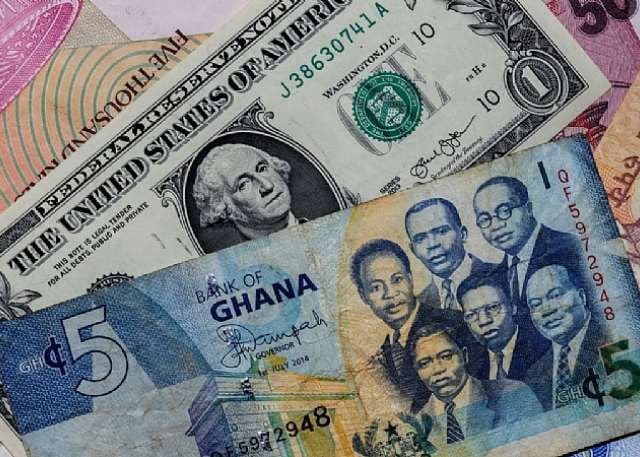The Ghanaian cedi experienced notable volatility against major international currencies, particularly the US dollar, on Thursday, August 7, 2025. Data compiled from Cedirates.com, a trusted source for currency and fuel pricing in Ghana, revealed a disparity between interbank and forex bureau rates, reflecting the varied dynamics influencing the cedi’s value. The average buying rate for the US dollar stood at GHS10.54, while the selling rate reached GHS11.03. This average represents a midpoint between the more favorable interbank rates and the higher rates offered by forex bureaus. The divergence in pricing likely stems from factors such as market accessibility, transaction volumes, and individual bureau pricing strategies.
Forex bureaus, which cater to a broader public and smaller transactions, presented a less favorable exchange rate for individuals seeking to acquire US dollars. Buying a dollar at a forex bureau required GHS11.50, while selling fetched GHS11.90. This notable difference compared to the interbank rates underscores the premium charged by bureaus for their services and their consideration of market fluctuations and operational costs. The interbank market, on the other hand, accessible primarily to larger financial institutions and involving more substantial transactions, witnessed a tighter spread. The Bank of Ghana’s interbank platform recorded a buying rate of GHS10.54 and a selling rate of GHS10.56 against the US dollar, demonstrating a more stable and controlled exchange environment.
Beyond the US dollar, the Ghanaian cedi’s performance against other major currencies like the British pound and the euro echoed similar trends. The pound traded at an average of GHS13.87 for buying and GHS14.68 for selling at forex bureaus. Meanwhile, the Bank of Ghana’s interbank rate for the pound stood at GHS14.10, again reflecting the more competitive pricing within the interbank market. The euro followed a similar pattern, trading at GHS12.10 for buying and GHS12.79 for selling at forex bureaus, while the interbank rate was recorded at GHS12.29. This consistent disparity highlights the influence of market segmentation and the distinct roles played by forex bureaus and the interbank market in shaping currency exchange rates.
The landscape for international remittances and digital subscriptions presented a more unified and competitive pricing structure. Money transfer operators like LemFi and Afriex offered notably favorable rates for remittances from the US or UK to Ghana. Both platforms quoted GHS10.50 for dollar remittances, GHS14.00 for pound remittances, and GHS12.21 for euro remittances. These competitive rates likely reflect the drive within the remittance market to attract customers with lower fees and more favorable exchange rates, ultimately benefiting Ghanaians receiving funds from abroad. This consistency across platforms provides transparency and predictability for those relying on these services.
Digital subscription services, encompassing platforms like Netflix, Spotify, and Apple Music, presented a standardized exchange rate for payments made via Visa and Mastercard. The rate for these transactions stood at GHS11.34 for both the dollar and the pound, offering a simplified and consistent cost for users. This consolidated approach simplifies budgeting for users and removes the complexity of navigating fluctuating exchange rates for individual subscriptions. This consistent rate across various digital platforms highlights the streamlined nature of international digital transactions and offers a predictable cost structure for Ghanaian consumers.
In summary, the Ghanaian cedi exhibited fluctuating performance against major currencies on August 7, 2025. The data reveals a distinct difference in exchange rates between forex bureaus and the interbank market, with the latter offering more favorable rates for the dollar, pound, and euro. Remittance platforms like LemFi and Afriex provided competitive and consistent rates for international money transfers, while digital subscription services maintained a standardized exchange rate for Visa and Mastercard transactions. These variations in pricing reflect the segmented nature of the currency exchange market and the diverse factors influencing the cedi’s value against international currencies. This comprehensive overview provides valuable insights into the dynamics of the Ghanaian foreign exchange market and its impact on consumers and businesses alike.


